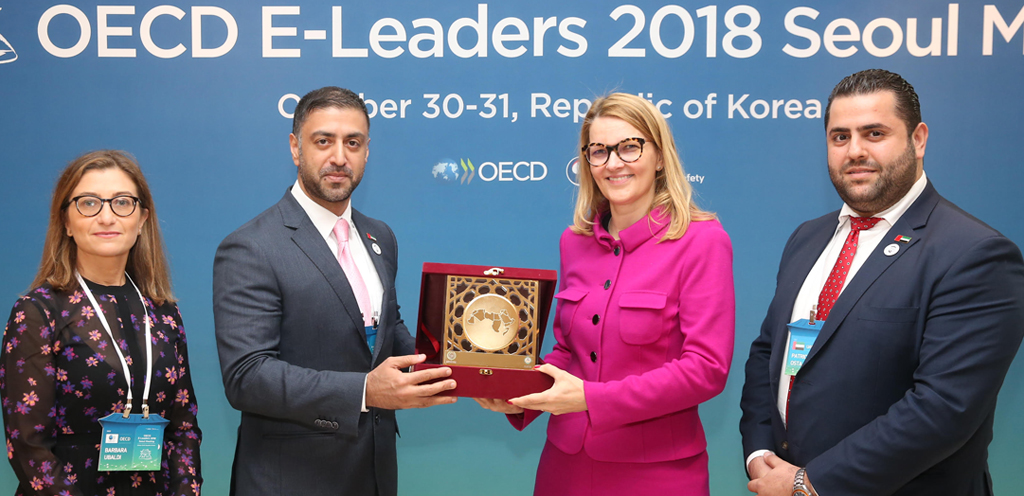
The Council of Arab Economic Unity, represented by Dr. Ali Mohamed Al-Khouri, Advisor to the Council and Chairman of the Board of Directors of the Arab Union for the Digital Economy, met with H.E. Mary Kivinimi, Deputy Secretary-General of the Organization for Economic Cooperation and Development in South Korea, during the work of the digital transformation group organized by the organization in the capital, Seoul, on 30- October 31, 2018.
This meeting comes within the efforts of the Council of Arab Economic Unity to keep pace with the requirements of sustainable development and to invest the tools of the Fourth Industrial Revolution in strengthening the digital economy system in the Arab world.
The prospects for cooperation and support for the efforts of the joint Arab vision of the digital economy and building infrastructure for sustainable development in the Arab countries were discussed. The two parties also emphasized that the Arab world has real huge opportunities to strengthen its economies through the digital economy system.
The Council presented a shield of appreciation to H.E. Kivenemi for her efforts in international cooperation, in supporting inclusive growth and in supporting the global digital economy.
Among the most prominent tasks of H.E. Kivenemi is strategic oversight in the areas of efficient and effective governance, regional development, trade and agriculture, and statistics, in addition to her responsibility to drive the Better Living Initiative in the Organization for Economic Cooperation and Development.
The OECD works on issues related to economic, social and environmental change such as regulatory reform, development and international trade, to promote policies that improve the economic and social well-being of people around the world.
Since its establishment in 1961 and headquartered in the French capital, Paris, the organization has contributed to quantitative economic research on the costs and benefits of trade facilitation, and has developed a set of trade facilitation indicators that identify areas that need action, and allow assessment of the potential impact of reforms related to indicators that cover the entire spectrum of border procedures. For more than 160 countries of different income levels, geographical regions and stages of development.
| About | |
|---|---|
| Initiatives | |
| Knowledge | |
| Services | |
| Media Center | |
| Contact |